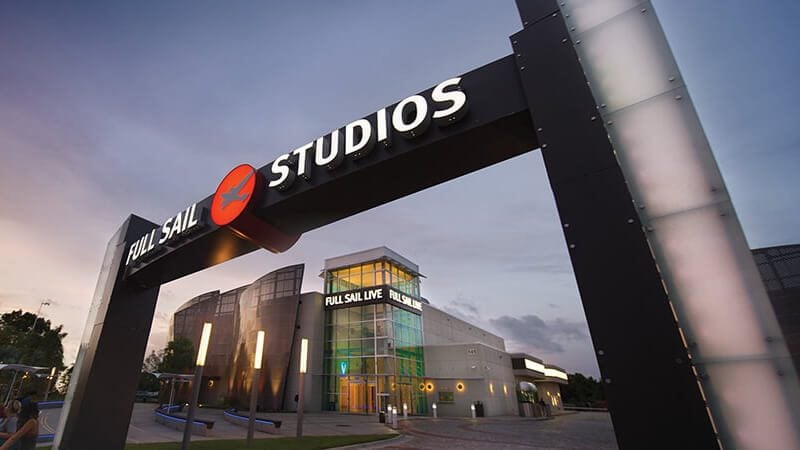Career Information
Key Careers in Audio Production: A Beginner’s Guide
If you’ve got a discerning ear and a passion for sound, an audio production career might be a good fit for you. With the right training, you can mix, master, and record music; capture and edit sounds for movies and television; design audio landscapes for video games; and more. This guide will introduce you to just a few of the careers you can pursue.
Music Careers
Recording Engineer
Recording engineers are responsible for the overall sound of a finished track. They set up microphones, cables, and software, then capture live sessions or individual instruments with a soundboard. When all of a track’s components have been recorded, the recording engineer edits them and composes them into a cohesive track. Some recording engineers also take care of mixing and producing, while others focus just the recording console.
Mixing Engineer
Mixing engineers put the pieces of a multitrack recording together to create a finished audio track. This involves altering the volume levels of different sections, using processors like compression and EQ to enhance the track, and adding effects like reverb and delay. Mixing engineers work with recording artists and producers throughout the mixing process to tweak the track for a finished product that pleases everyone.
Mastering Engineer
Mastering engineers put the final touches on a recorded track. They make sure that a song will play well in any format (like vinyl, mp3, or CD) and through any type of speaker (like headphones, laptop speakers, or movie theater surround sound). Mastering engineers make dozens of small but essential sound adjustments with equalization, compression, and more to create a flawless master track.
Record Producer
Record producers are the music industry equivalent to film directors: They oversee all elements of a recording project, from developing the artist’s vision to managing budgets and schedules. They help artists choose songs and nail down arrangements, work with them during recording sessions to get the best possible tracks, and work closely with recording engineers to bring the artist’s songs into focus.
Recording Studio Manager
Studio managers run the daily operations of a recording studio as profitably and smoothly as possible. They schedule recording sessions with artists, purchase and maintain equipment, hire creative and technical staff, and take charge of the studio’s marketing efforts. Client satisfaction is paramount to a studio manager’s job, so they keep a close eye on scheduled projects to make sure everyone’s needs are met.
Recording Studio Owner
Studio owners establish, run, and sometimes build recording studios. They have the final say in all decisions, including who to hire, which clients to take on, and how to grow the studio’s business. They might network to build relationships with new clients, court investors for financial backing, develop marketing strategies, or oversee new construction. Most studio owners hire studio managers to run the day-to-day operations.
Film, Television, and Video Game Careers
Sound Designer
Sound designers create, edit, and mix the audio elements that go into a production. They source sounds for movies, TV, video games, live shows, and anything else that requires background audio. Sound designers might find sounds in digital libraries, recreate sounds in a studio, or record sounds in the real world and work them into a project. Most of their work takes place behind a sound board, where they match up sounds with visuals to evoke a particular mood. Sound designers need to have a keen ear to find interesting sounds and a creative mindset to use those sounds effectively.
Audio Director
Audio directors call the shots for audio teams in the video game industry. They determine a game’s audio design guidelines, manage their team’s workflow, and set deadlines. They also collaborate with other teams, like animators and voice actors, to make sure the game’s overall audio design is cohesive across all elements. Audio directors may also take on managerial duties, like creating budgets and hiring new team members.
Music Editor
Music editors edit and sync the music in movies and TV shows so that it reflects the onscreen action. They meet with a project’s composer and director to select music and decide when it will play during a film. They keep the composer in the loop regarding the duration, timecode, and style of each musical cue. They might also make a temporary score, or “temp music,” from existing tracks so that studio executives can watch a preview of the movie while the score is being completed. Music editors also oversee the final recording process and work with the re-recording mixer to combine the music with other audio elements.
Production Sound Mixer/Recordist
A production sound mixer captures audio both on set and on location for movies and TV shows. They mix and balance recorded audio and troubleshoot background noise, echoes, botched dialogue lines, distortion, and other sound issues that may arise. Production sound mixers oversee the production audio crew on larger projects, but they may take on several roles on small-budget movies and shows, including mixing on a mobile controller, setting up wires, operating boom mics, and more. Production sound mixers are sometimes called production sound recordists.
Sound Effects Editor
Sound effects editors collect the sounds that are needed for a film, like the squeal of tires in a racing movie or the rustling of leaves when an actor walks down a sidewalk. After they have what they need, they watch a preview of the movie and cue up the effects to match the onscreen narrative. Sound editors often replace sounds that were picked up during filming with clearer options, and they augment dialogue and background noise with additional sounds for a richer audio experience.
Re-Recording Mixer
Re-recording mixers make the final changes to a film’s soundtrack. They come in during a film or television show’s audio postproduction process and layer the prerecorded audio elements, like dialogue, special effects, background noise, and music. They balance audio levels, add reverb and other filters, and fix technical glitches. The goal is to create a story through sound that complements what a viewer will see onscreen. The re-recording mixer is usually the last person who modifies a film’s audio components before it is released.
Other Careers
Forensic Audio Specialist
Forensic audio specialists closely examine audio files and songs for legal purposes. Specialists who work in the music industry might compare two songs to see if one has copied the other and infringed on the song’s copyright. Forensic audio specialists in the legal field will examine evidence audio files to check the file’s authenticity, enhance existing dialogue, and remove background noise to make the file easier to understand.
Whether you’re ready to apply or just want to learn more about Full Sail University, our Admissions Representatives are here to help. Call us or request more information.
Keep Exploring
- Military
- Art & Design
- Sports Marketing & Media
- Innovation & Entrepreneurship
- Student Life
- Faculty
- Warped Tour
- News
- New Media Journalism
- Alumni Updates
- Events
- Online
- Accolades & Awards
- Graphic Design
- Public Relations
- Student Work
- Digital Marketing
- Courses
- Career Development
- Artificial Intelligence
- I Made This

